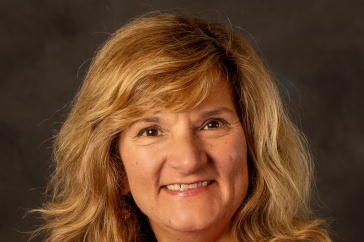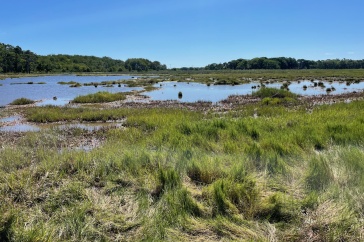
When I first spoke to Doctor Patricia Halpin about what my senior capstone project would be, I had no idea the time and work that I would be putting into it, and how much I would enjoy all of it. My name is Franceska Balle, I am a senior at the University of New Hampshire at Manchester, focusing on the biological sciences, and I will be graduating in May.
The last piece of this crazy puzzle that is college, is one giant class, known as a senior capstone. Whether it is an internship at a company you are hoping to work for, a job in a field such as a hospital in which you wish to work in the future, or a research topic in which you are extremely interested, your capstone project can be so many things — and you will present it at the Undergraduate Research Conference (URC) in April.
When I began my biology career at UNH I was so unsure where to even start. The health care industry has hundreds of options for any aspiring students and, particularly here at UNH Manchester, I found myself having more and more opportunities for jobs, internships, research and more. My professors and the Internship & Career Planning center were so encouraging in helping me find any type of job I was remotely interested in. Ultimately, education pulled me in. I never expected or saw myself as a teacher, but being in the classroom and having the ability to be so involved with the children makes such a world of difference in my eyes. Sometimes dealing with people younger than yourself and seeing how they act at a certain age, and comparing that to yourself, opens up your eyes. You can really see a change in yourself.
Ever since I have decided to become a teacher, I have never been so grateful for my latest opportunity at Bakersville Elementary School. The principal of the school spoke to Professor Halpin and had requested her to come into the school and teach science to the kids. When she told me this I thought, “Wow, I really need to do this!” Once I explained to Professor Halpin my interest in education, she immediately asked me to join her in this experience, and the planning begun.
We are currently going into every classroom within the school, roughly 16 or so classes, and performing different experiments with kids of all ages. Starting with the kindergarteners, we spoke to them about healthy eating, why a healthy breakfast is important and taught them how the digestive system works and what happens to your food from start to finish.
Now working with the first graders, we are doing a great experiment in which we are teaching about insulation. We set up buckets with three bags of varying thickness in them and filled them with ice water, then have the students stick their hand in each bag and decide which is the warmest and which is the coldest. This helps them think about ideas of how different animals stay warm. We have a bag that simulates “bear fur,” the warmest bag, and another bag with no insulation at all, which is simulating humans. This experiment promotes the children into doing an activity in which they have an idea, perform an experiment and then discuss the results. For students, this type of structure only increases as they continue their education.
As for the fourth and fifth graders, we will be doing a physiology experiment in which the kids measure their blood pressure and heart rates before and after they jog around the playground. Professor Halpin has performed this experiment before during Phun Week in the UNH STEM Discovery Lab.
For anyone interested in how the rest of my experience turns out, please visit my display at the URC in April, and see all the projects and posters that other students have been working on.
Written by Franceska Balle '16, Biological Sciences
UNH Manchester offers the career-driven programs, faculty talent and student-centered community to shape your future.
Learn more today
















































